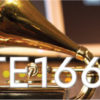
The National Cultural Foundation
West Terrace,
St. James, Barbados
246-417-6610
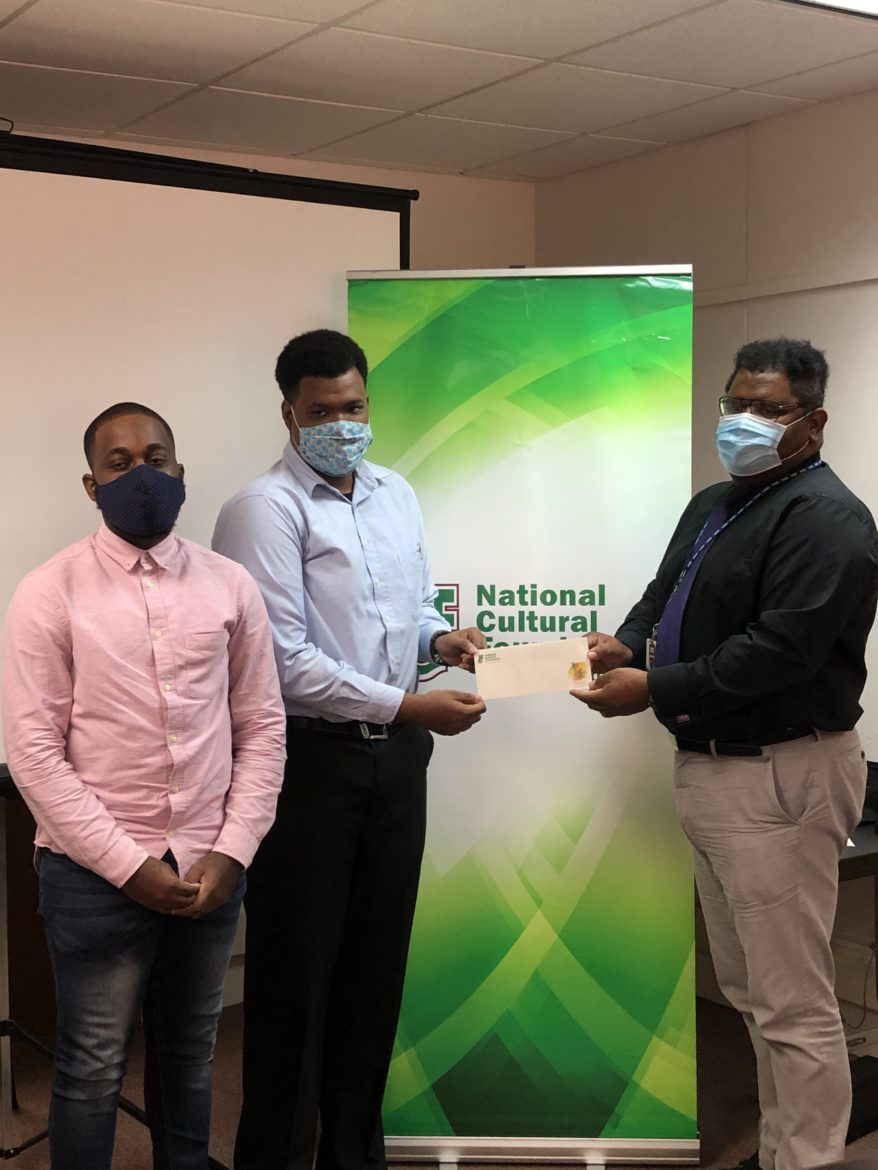
Arts & Culture - Literary ArtsNewsNIFCA
todayJanuary 6, 2023 316
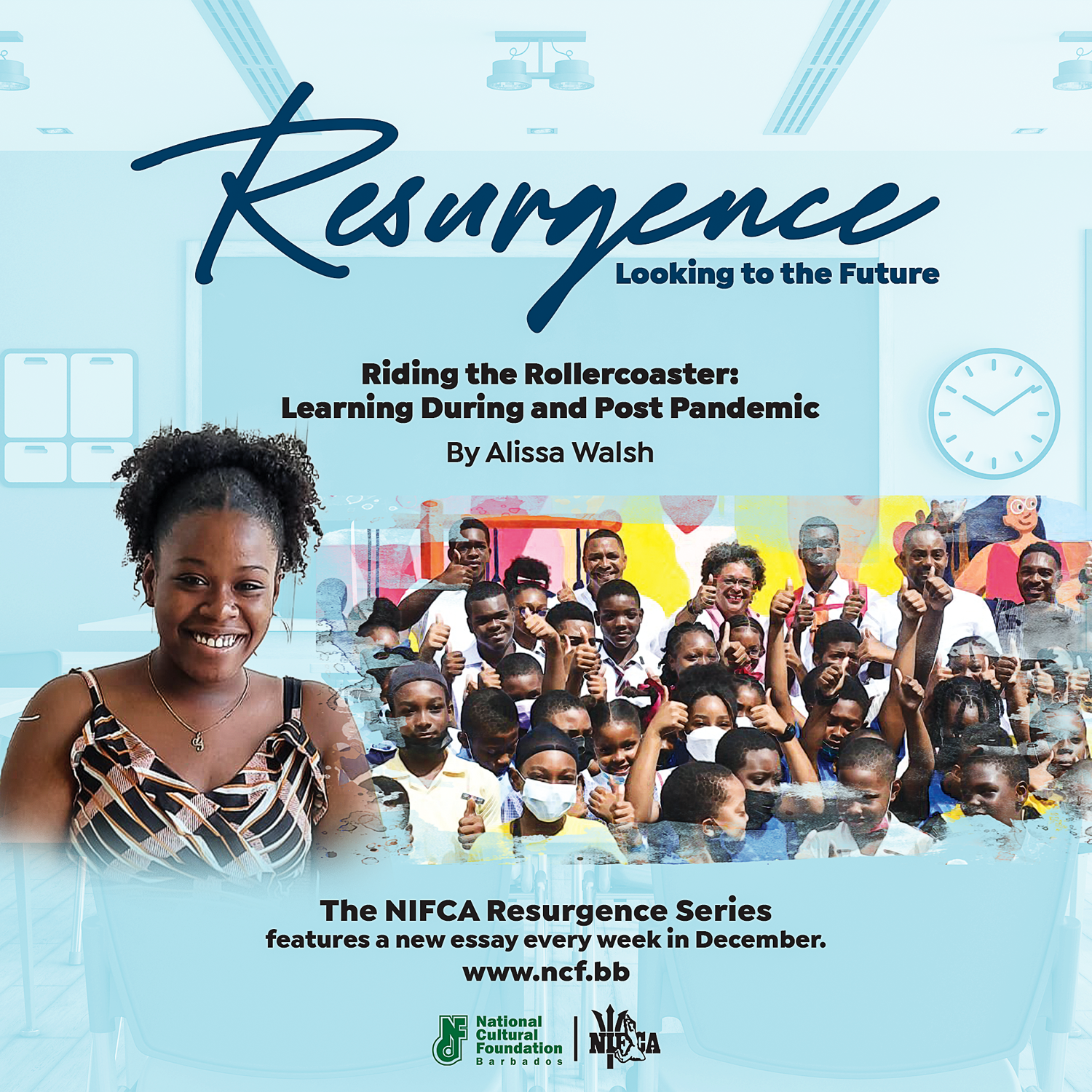
by Alissa Walsh
Resurgence: This series of essays curated by the National Cultural Foundation’s Literary Arts Officer, Karra Price, features the thoughts and commentaries of Barbadians immersed in various aspects of daily endeavour. This essay examines the effects of the pandemic on the educational system, seen through the eyes of a child.
2020 – the year that seemed to flip our lives upside down. No one saw it coming. No one was truly prepared. COVID-19 was a force to be reckoned with as it disrupted our lives, determined to ensure that we’d never forget it. One section of society heavily affected by COVID was the education system. As a student, I know firsthand how much my educational journey endured at the hands of the pandemic – from attending school as my mother prepared breakfast in the room across from me, to struggling to fall back into the pattern of face-to-face classes again. The road was everything but smooth and straight and, in this essay, I’ll discuss the highs, the lows, and my opinion on the future of education after the anomaly that was the pandemic.
When schools were closed due to COVID in March 2020, I was a mere third former who took this sudden pause as an early vacation, not fully grasping what exactly was going on and the world’s understandable state of panic. As my self-proclaimed vacation stretched on and I ran out of self-entertainment, I surprisingly found myself wondering, “What happened to school?”. There was a hope in the back of my mind that everything would soon calm down and I would return to school, falling right back into my pattern as if I had never even left. I couldn’t have been more wrong. Slowly but surely, my teachers began to reach out, the Ministry of Education had not yet instructed the resumption of school officially but that didn’t discourage a few teachers from holding small google meets here and there to keep our minds active. And thus began online learning.
More teachers joined in, and the Ministry announced the official resumption of school in an online format through the help of Google Classroom, Zoom and other platforms. I will admit it was a bit strange learning while my mother’s pots and pans clanged against each other in the next room. I can think of too many times I had to mute my microphone and request she be a little gentler with her kitchenware. In addition to physical distractions, there were quite a number of digital enemies. With technology being a gateway for a variety of things, it can make or break your educational journey and there were times I almost allowed it to break mine. I would be up, either finishing assignments or just studying, and a notification would pop up in the corner of my screen for an exciting YouTube video or a new post on my friend’s Instagram. I would stare at it longingly, debating the Internet’s bait, and, although I lost the battle sometimes, I fought off these distractions for the most part. During this, I realized something that catalyzed my educational journey, this form of education was not for the weak-willed. I only got the work done because I wanted to get the work done and if you had no desire to get work done, you were in trouble.
As time progressed, restrictions were slowly eased and people began to poke at the idea of returning to in-person classes. I, for one, was completely against it. I had found my new normal and it seemed to be working for me. I had taken the adversity life had thrown at me and many others and manipulated it to benefit me. With the absence of my peers, a newfound attitude of independence and a drive to complete my school work, I had no interest in face-to-face schooling.
It started small: only the first formers attended for half of a week, but soon the whole school returned with half of the school alternating face-to-face classes for half of the week with online classes. Although in the beginning I strongly opposed it, this period of education was the most efficient. I found that the new system offered inclusivity: those who preferred in-person schooling had their dose of such, while those who, like me, thrived in online spaces were also satisfied. In addition, I came to the realization that some concepts for certain subjects just have to be taught in-person because as great as online schooling was, it had its limitations.
Fifth Form was approaching, and I had no doubts about performing well because I had developed a stable and efficient strategy for learning that suited me and my needs. Then, to my great displeasure, the Ministry of Education announced the full resumption of face-to-face classes and the abandonment of online learning. Due to this, I found myself lacking motivation because one of the main factors that encouraged me was the new independent style of learning I’d adopted. I struggled to adapt to this new normal even though prior to 2020 face-to-face classes had been all I’d known. At the end of each school day, I found myself drained, no longer used to the constant human interaction and walking I’d once taken on with ease. After a while, I adjusted and bounced back, despite my personal belief that I will never be at my optimum since my current environment is face-to-face classes.
Now that I have been through the rollercoaster that is my school years under the influence of COVID, where do I, as a student, see the future of education? If you look around the world today, you see the constant advancement of technology and the many avenues each development opens up for mankind. The future of education is more than likely bound to intertwine with technology again. Online, we have thousands of resources right at our fingertips, waiting to be used for something great. So much is at our disposal it would only seem fair and sensible to use as much of it as we can. That’s why I believe we must explore the idea of incorporating more modern technology and online learning into our schooling. Yes, the technology has become much more integrated into our schools since COVID, but I still believe it could and should play a more vital role.
In conclusion, COVID was a period of instability. The norm was constantly shifting, and the lack of consistency was of aid to no one, but even with my way of life changing suddenly and rapidly, I am thankful I came out on the other side. I look forward to whatever the future may have in store for me… uncertainty and all.
Written by: Info NCF
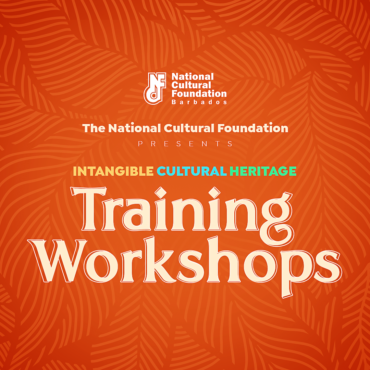
labelNews todayDecember 30, 2022
FREE CREATIVE ARTS TRAINING IN COMMUNITIESSIGN UP TODAY! Have you ever wanted to wangle low, join a tuk band or perform your poetry but were not sure what steps to [...]
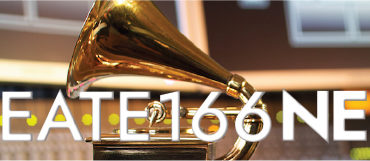
labelNews todayFebruary 5, 2026
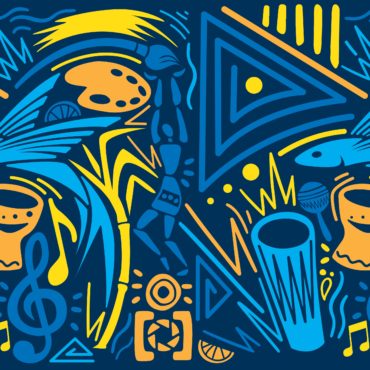
labelNews todayJanuary 28, 2026
The National Cultural Foundation
West Terrace,
St. James, Barbados
246-417-6610
Copyright 2024 National Cultural Foundation